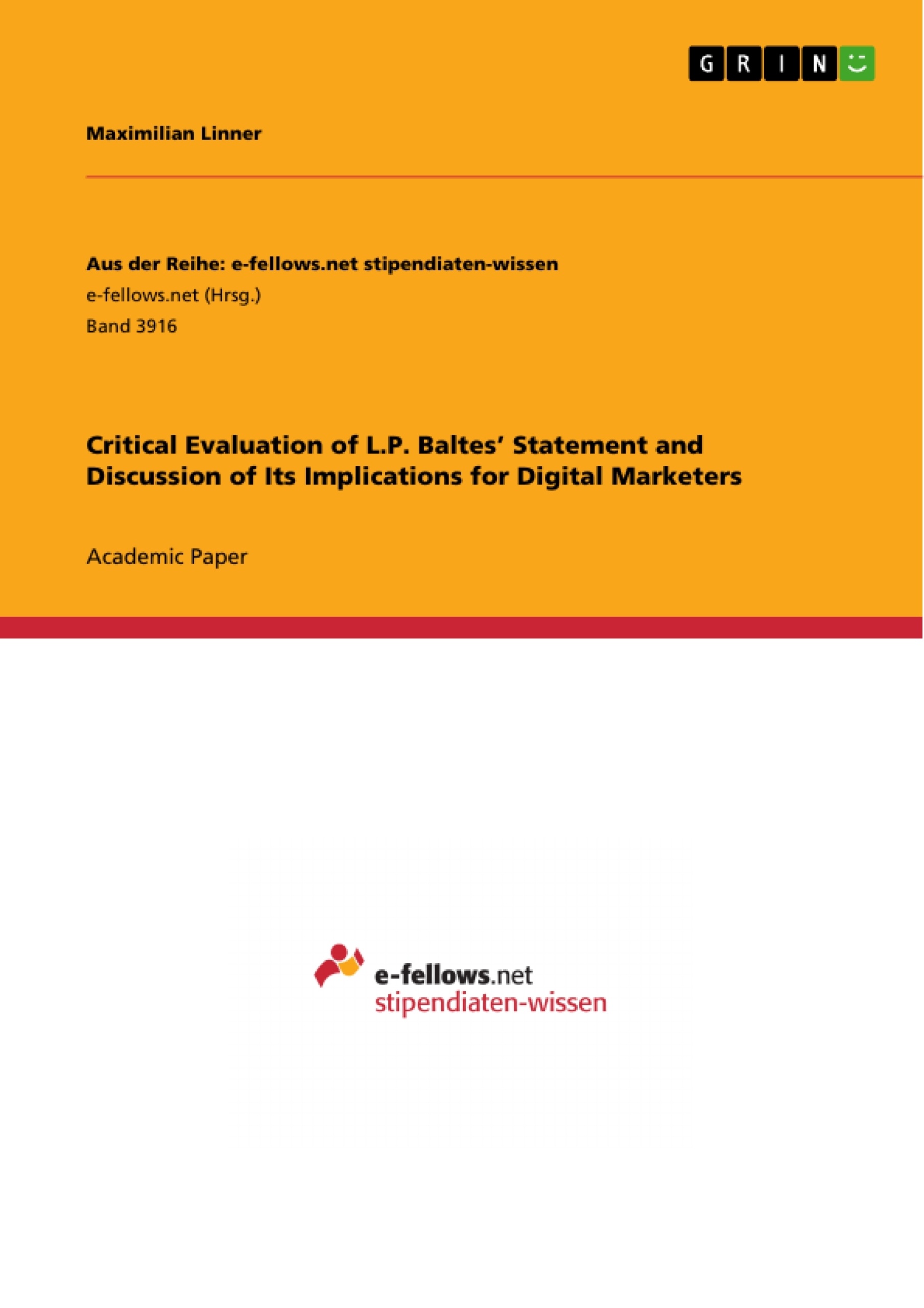This assessment is based on L.P. Baltes’ statement that digital marketing requires the existence of content marketing and that the success or failure of a company’s online communication depends largely on the quality of the content marketing. This assessment gives an overview of different definitions of content marketing, the beginnings of marketing, and the main differences between traditional and digital marketing. Furthermore, an assessment of the quality of content marketing taking into
account different types of content marketing, quality measurements, and the analysis of quality content was created and presented using the example of Coca Cola. Coca Cola was critically evaluated, if and how L.P. Baltes’ statement can be confirmed or not.
Inhaltsverzeichnis (Table of Contents)
- Abstract
- Introduction
- Definition Content Marketing
- Difference Traditional and Digital Marketing
- Traditional Marketing
- Digital Marketing
- Comparison of both marketing forms
- Quality Content Marketing of Coca-Cola
- Evaluation of Buyer’s Persona
- Types of Content Marketing
- Analysis of Coca Cola’s Homepage
- Analysis of Coca Cola’s YouTube page
- Conclusion
Zielsetzung und Themenschwerpunkte (Objectives and Key Themes)
This assessment aims to define content marketing and explore the differences between traditional and digital marketing strategies. The evaluation uses the example of Coca-Cola to critically assess the quality of content marketing, considering different types of content, quality measurements, and analyzing the overall content quality.
- Defining content marketing and its significance in today's digital landscape.
- Analyzing the key differences between traditional and digital marketing approaches.
- Examining the role of content marketing in building customer engagement and brand loyalty.
- Evaluating the quality of content marketing using the case study of Coca-Cola.
- Exploring the implications of content marketing for digital marketers in achieving their goals.
Zusammenfassung der Kapitel (Chapter Summaries)
The introduction establishes the context of content marketing in the digital age, highlighting its importance for businesses to reach and engage consumers. Chapter 2 delves into the definition of content marketing, exploring different perspectives and its key characteristics. Chapter 3 draws a clear distinction between traditional and digital marketing, discussing their respective advantages and disadvantages, highlighting the shift towards interactive and customer-centric marketing strategies. Chapter 4 focuses on Coca-Cola as a case study, analyzing its content marketing approach, including buyer persona development, different types of content used, and the quality of its online presence. The chapter also examines the role of SEO and social media in Coca-Cola's digital strategy.
Schlüsselwörter (Keywords)
The core keywords and topics of the text include digital marketing, content marketing, quality measurement, online communication, traditional marketing, customer engagement, brand loyalty, Coca-Cola, buyer persona, and SEO.
- Quote paper
- Maximilian Linner (Author), 2021, Critical Evaluation of L.P. Baltes’ Statement and Discussion of Its Implications for Digital Marketers, Munich, GRIN Verlag, https://www.hausarbeiten.de/document/1131254



